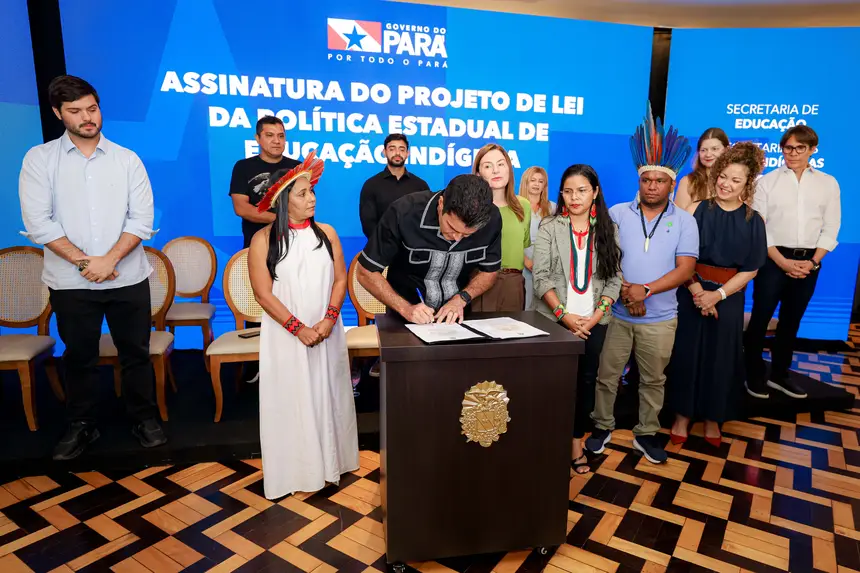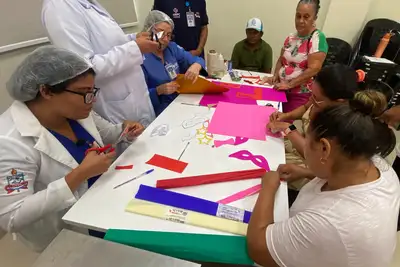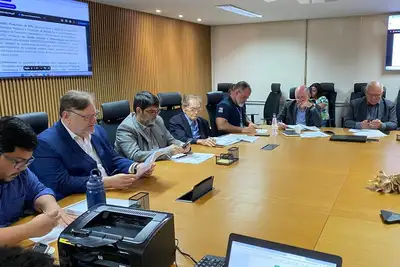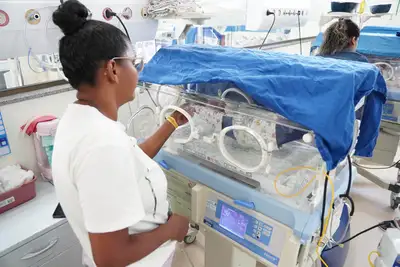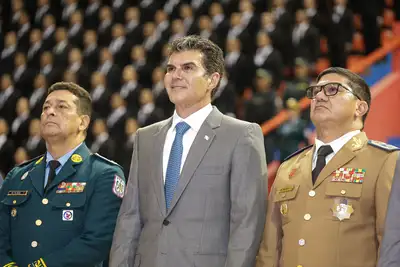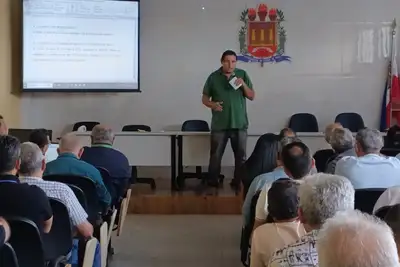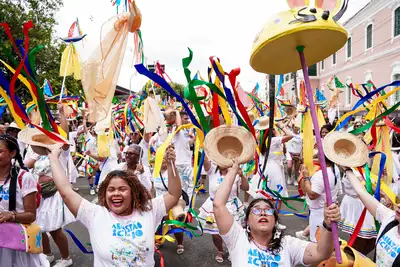Bill that establishes the State Policy for Indigenous School Education is signed by the Government of Pará
Historic initiative ensures bilingual education and appreciation of traditional knowledge; proposal goes for analysis by Alepa

The Government of the State of Pará, through the State Secretariat for Indigenous Peoples (Sepi), signed the Bill that establishes the State Policy for Indigenous School Education, consolidating an unprecedented milestone in valuing the cultural and linguistic diversity of the indigenous peoples in the state. Built with broad social participation, the proposal will now be forwarded to the Legislative Assembly of Pará (Alepa) for consideration and voting.
The document is the result of a process of active listening and dialogue with indigenous communities, with free, prior, and informed consultations conducted in the eight ethnoregions of Pará. The collective construction involved teachers, leaders, representative organizations, and public power representatives.
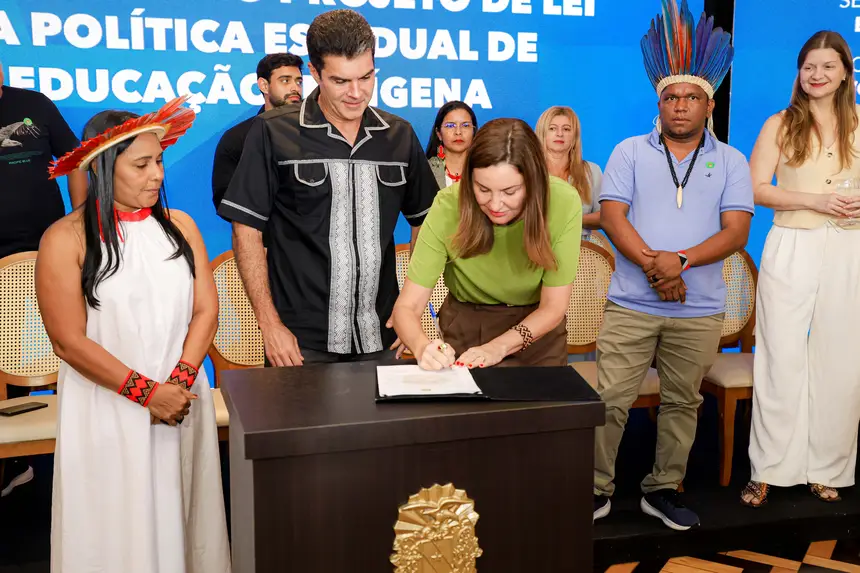
Differentiated education and respect for cultural identity
Focusing on interculturality and the guarantee of rights, the project ensures a differentiated indigenous school education, bilingual (in indigenous mother tongue and Portuguese) and based on the appreciation of traditional knowledge. The measure meets what is provided for in the Federal Constitution, the National Education Guidelines and Framework Law (Law No. 9.394/96), and specific regulations in the area.
During the signing ceremony, Governor Helder Barbalho highlighted the importance of the project for the transformation of indigenous education in the State.
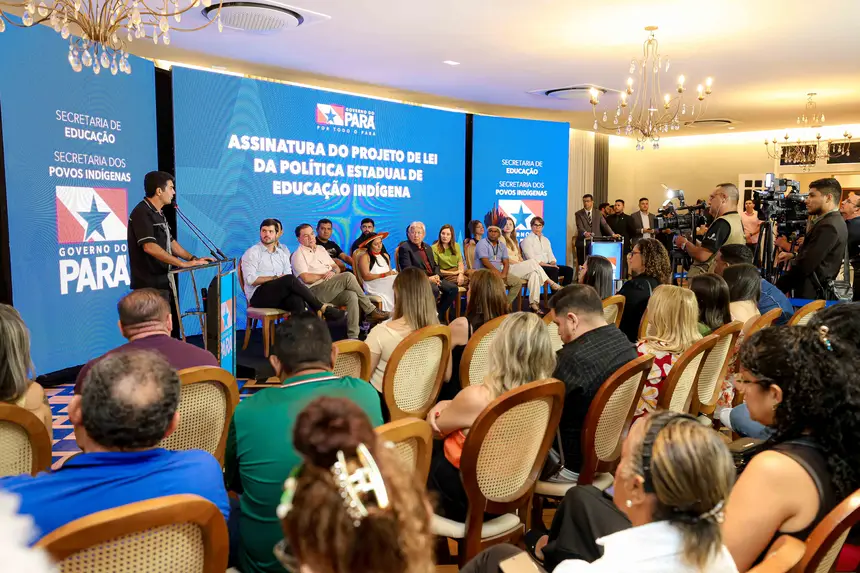
"With this law, the State challenges itself to an absolutely fantastic process of improving the quality of indigenous education in the Pará territory and, more than that, points to the most important and robust law with the scope of transforming the quality of education. With this, we can guarantee the preservation of indigenous culture in the State of Pará, with an education that allows peoples to preserve their culture and have access to quality education," said the governor.
Indigenous participation and appreciation of traditional knowledge
The State Secretary for Indigenous Peoples, Puyr Tembé, the first indigenous woman to hold the position, emphasized that the policy is the result of the historical struggle of indigenous peoples.
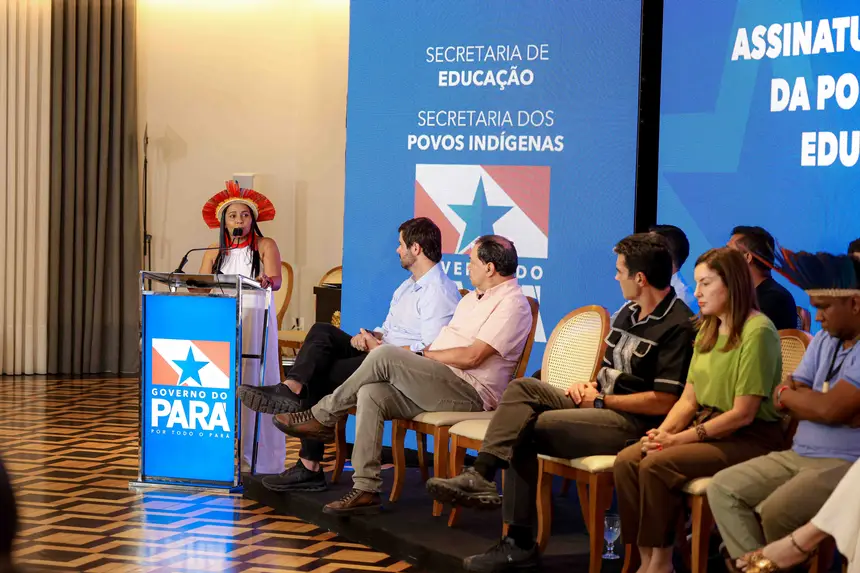
“This is a moment of great emotion and responsibility. We celebrate an advance that is the result of the persistence and resistance of our peoples. Indigenous school education now recognizes and values our languages, our cultures, and our ancestral knowledge. It is the affirmation that our children and youth have the right to learn from their own history, strengthening indigenous identity and protagonism in each community,” she said.
The bill also provides for structuring actions, such as:
- Implementation of bilingual education (mother tongue and Portuguese);
- Conducting specific public competitions for indigenous teachers;
- Strengthening the Indigenous Modular Education System (Somei);
- Creation of the State Council for Indigenous School Education;
- Inclusion of traditional knowledge as part of the school curriculum.
Inter-institutional construction and active listening
The Attorney General of the State, Ana Carolina Gluck Paul, reinforced the participatory nature of the proposal. "It reflects the need for an inclusive multicultural education for indigenous peoples. There was a special concern to ensure prior, free, and informed consultation with all indigenous peoples in the eight ethnoregions of our State. It is legislation by indigenous peoples for indigenous peoples, bringing together many hands, many minds, and many hearts," she stated.
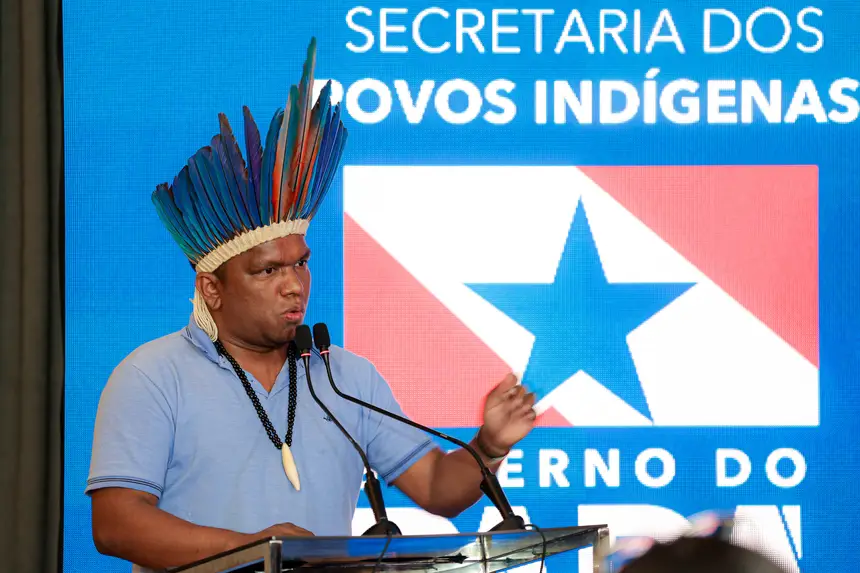
The executive coordinator of the Federation of Indigenous Peoples of Pará (Fepipa), Ronaldo Amanayé, highlighted that the policy encompasses all the indigenous diversity of the state.
“Indigenous school education is for all indigenous peoples of the State of Pará. We have more than 30 languages spoken, there are more than 70 indigenous peoples in the state, representing more than 25% of the Pará territory. Education is part of this process of sustainability and sociodiversity, ensuring health, infrastructure, and quality public policies for our peoples,” he said.
Concrete advances and next steps
The project was developed by an inter-institutional Working Group, with participation from Sepi, the State Attorney General's Office (PGE), the State Department of Education (Seduc), the State University of Pará (Uepa), and the Federation of Indigenous Peoples of Pará (Fepipa).
According to the Deputy Secretary of Education, Professor Diego Maia, the project paves the way for concrete advances in indigenous education. "We will have a grand advancement, such as the competition for indigenous teachers, the creation of the State Council for Indigenous Education, essentially indigenous, and the appreciation of identity, culture, and traditional values. Addressing these cultural specificities of our Amazonian territory is a significant advance," he stated.

The next step will be to send the Bill to Alepa, where it will go through the legislative process. The expectation is that the approval will consolidate the State Policy for Indigenous School Education as a fundamental instrument to guarantee the right to education with respect for the identity, culture, and autonomy of indigenous peoples.


